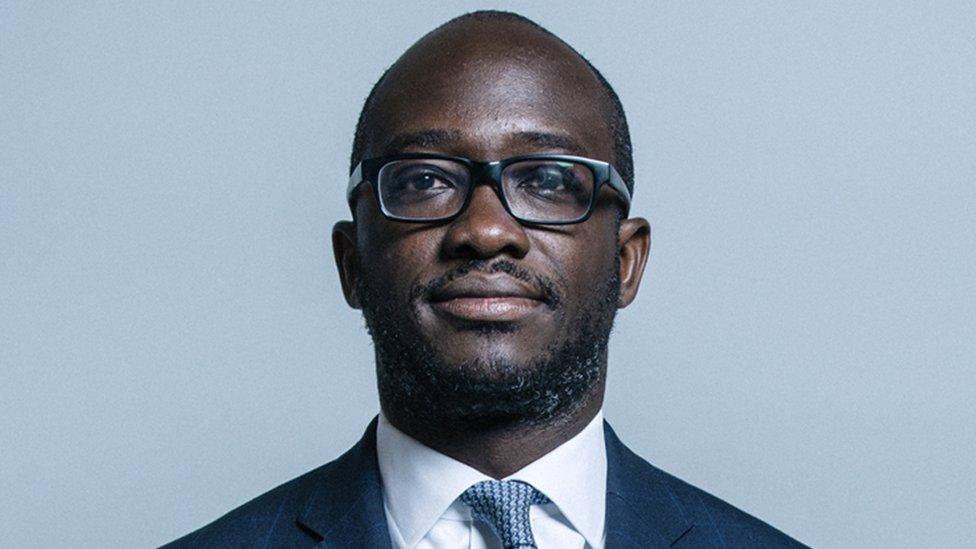Sam Gyimah is new universities minister, replacing Jo Johnson
- Published

Sam Gyimah has been made Universities and Science Minister for England in Theresa May's government reshuffle.
Mr Gyimah's role straddles the Department for Education and the Department for Business, Energy and Industrial Strategy.
He replaces Jo Johnson, who has been made Transport Minister.
Mr Gyimah, 41, will work alongside the newly appointed Education Secretary, Damian Hinds, who is replacing Justine Greening.

What else do we know about him?
born in Buckinghamshire but spent some of his childhood in his mother's native Ghana
studied philosophy, politics and economics at Somerville College, Oxford
worked for Goldman Sachs for five years before opting for a career in politics
became Conservative MP for East Surrey in 2010
served as a government whip and was parliamentary private secretary to the former Prime Minister, David Cameron, from 2012 to 2013
campaigned to remain in the European Union
was prisons minister, before taking up the post as universities minister on Tuesday
married with two children.
In a tweet, Mr Gyimah said he was looking forward to taking up his new role.
Allow X content?
This article contains content provided by X. We ask for your permission before anything is loaded, as they may be using cookies and other technologies. You may want to read X’s cookie policy, external and privacy policy, external before accepting. To view this content choose ‘accept and continue’.
Dame Janet Beer, president of the umbrella group Universities UK, said she looked forward to working with Mr Gyimah "to develop policy that supports universities to maximise their positive impact on the economy, society and students".
"The promised review of tertiary education funding in England and establishing the new regulatory framework and Office for Students will likely be top of the new minister's in-tray," she said.
"Improving post-study work visas for international students, supporting universities' role in promoting social mobility and securing our long-term participation in the European programmes Horizon 2020 and Erasmus+ should also be priorities."
- Published8 January 2018
